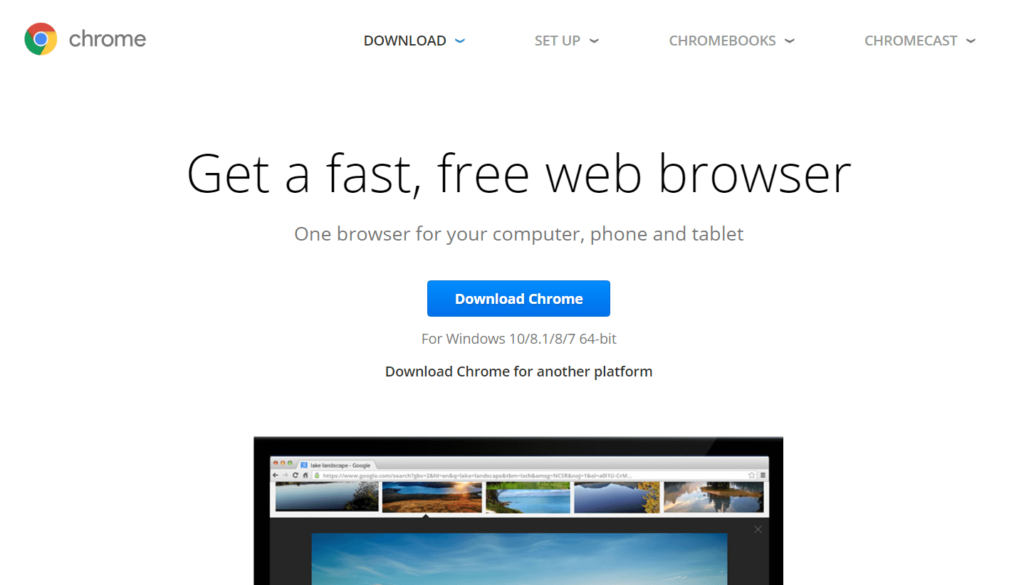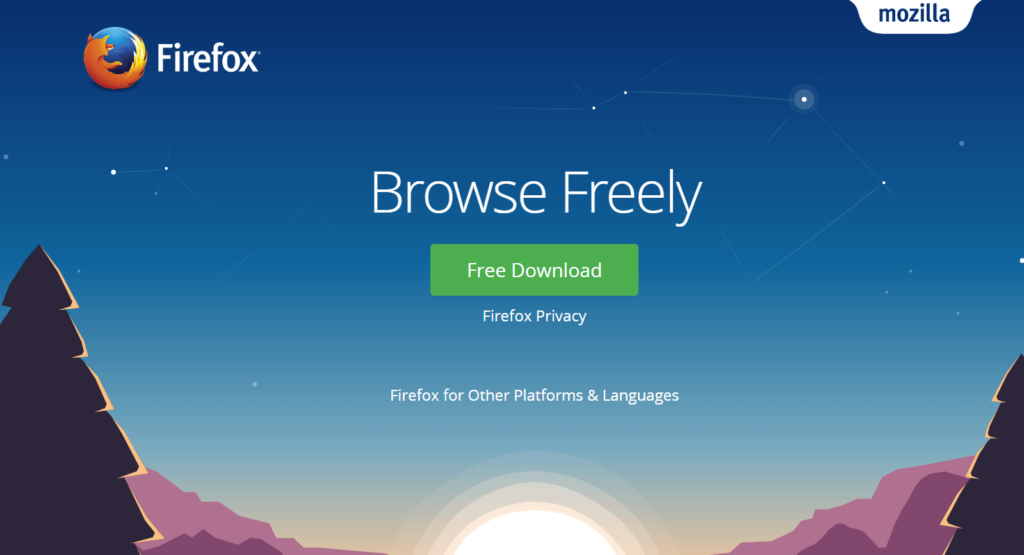Top Internet Browsers
Best 3 Internet Browsers
Web browsers are applications that use your Internet connection to access the World Wide Web. Basically, it sends requests to a web server, which processes the said request and sends back data in raw form. An internet browser translates this data into the graphical web page that you get to see and interact with. With websites becoming more user-friendly, interactive etc., you need browsers which have the capabilities to match up to these demands and process data faster.
Here we introduce a couple of the top web browsers which you should be using. We also describe what makes them stand-out from the other top browsers, so you can choose the best browser for you per your needs and wishes.
Top browser 1: Google Chrome
There is no denying the fact that Google Chrome is the most popular browser ever made.
Pros: It’s fast, simple and delivers a no-frills user experience. Professionals, as well as novice users, find Google Chrome to be equally good. If you are a pro, then the developer-oriented features, (which lay hidden mostly) are enough to make you jump into its user base.


In fact, Google Chrome is so popular that web pages are tested for their performance and delivery of user experience in it by web developers. It also makes use of Google’s enormous barrage of resources and knowledge to provide you a seamless experience across platforms and systems. The ever-growing extensions library is also a reason to have Chrome as your primary browser because of the increase your productivity on the web by a large margin.
Cons:
The only negative aspect of Chrome is the amount of RAM it eats away. This can be a problem in systems which are old or less memory. It also tracks and records your usage statistics in a very deep (often creepy) way, thereby giving Google more reach into your browsing habits and data about you. These can be handled with a careful choice of the privacy settings, though we’ll get to that later.
Top browser 2: Mozilla Firefox
Firefox has been here longer than Google Chrome has, it’s been decades since when Mozilla Firefox was launched.
Pros:
It has a fairly large development community backing it and the browser has proven to be really stable in performance. Like Chrome, it also features fairly large extensions and add-on library.
Mozilla Firefox ranks very high on personalization as well and offers a lot of flexibility in terms of privacy settings. Users who are wary of Google’s intense and deep reach into their data may choose Mozilla Firefox since it barely tracks user data without your knowledge.
Since it’s an open source community-backed project, they don’t really have to sell you to ad agencies or sell ads to you. Take this one, if you’re among the more paranoid of the lot & don’t want Google prying into your social life, yet need all the advanced features and performance a modern-day browser needs to provide.
Top browser 3: Microsoft Edge
This is Microsoft’s answer to Google Chrome. A simple and clean UI combined with brilliant background processing capabilities. It’s new on the block and hence, the user base, as well as the extensions and add-ons library, are not as diverse or large as the above two on the list.
Edge Browser got a lot of nifty features and is light on system resources too. Take this if you’re a novice user, looking for plain fast web-browsing and nothing else.
Top browser 4: Opera web browser
Another decade old competitor to others, Opera is a pioneer when it comes to web browsers. Many features like private browsing, tabbed browsing, instant cache and cookies deletion, etc., are originally said to have been introduced by Opera.
As of now, Opera runs on the same browser engine as Google Chrome, and hence, expect similar performance from both. However, Opera’s UI is as simple or rather more beautiful in some senses than Chrome and Firefox. Opera features a built-in ad-blocker, a battery saver tech for when the browser is running on laptops and mobile devices, and a free of cost VPN service. These are features that are enabled in other web-browsers only by making changes deep inside the menu or by installing add-ons.
BONUS!
Vivaldi, a new modern web browser built on the same browser layout engine as Google Chrome and Opera, this means, all add-ons and extensions designed and built for Google Chrome will work on Vivaldi also. This new sleek browser is beautiful and neat to look at. It is designed for use by heavy users, who at any time will have a dozen or so tabs open in the background. It’s got some nifty features that improve its usability manifolds. Give this one a try if you are searching for something different.


Comments
Post a Comment